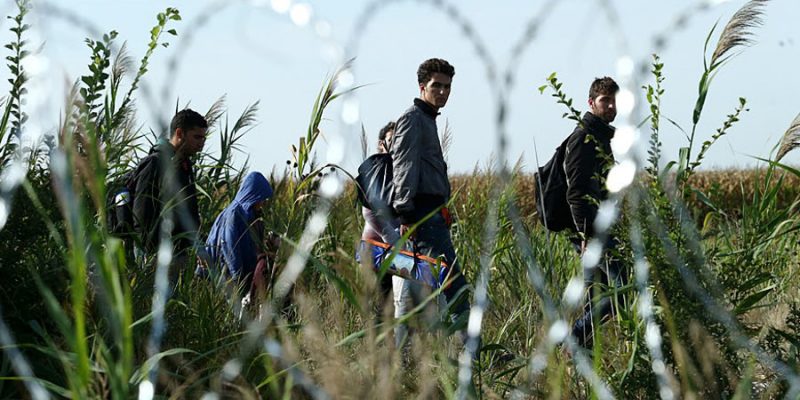1. Italy, where walls are built with laws
After the passing of the new immigration law, the situation in Italy for immigrants and asylum seekers is very worrying. Read Francesca Esposito’s article in Border Criminologies on how Italy is building walls made of unjust laws.
2. Italy, appeal denied
The new SPRAR report has dismantled all the clichés about reception, including the idea that the many rejections from the Territorial Committees meant that most asylum applications were unfounded: a large part of the negative decisions was actually reversed in the courts of appeal. If 70% of asylum seekers saw their applications granted on appealing, the recent elimination of a third jurisdictional level under the new law on immigration and asylum is very bad news indeed. Read Duccio Facchini’s article for Altreconomia.
3. Italy, is closing the doors on migrants rescued at sea really an option?
The Italian government has claimed that migrant arrivals have reached a “point of saturation” and threatens to close its ports to humanitarian vessels rescuing lives at sea. Read the stories in The Independent, The Washington Post and the BBC, as well as Pasquale De Sena and Francesca De Vittor’s legal analysis in SIDI Blog, on why this is not an option under the current international laws.
4. Libya, how we are sending migrants back to hell
Italy’s willingness to do anything to stop the flow of migrants was already apparent from the steps it had taken to make Libya a strategic ally – from the controversial deal with the internationally recognised Libyan government to the training of the Libyan Coast Guard -, while pretending to ignore the country’s disastrous humanitarian situation. Read Craig Damian Smith’s in-depth analysis for Open Democracy on the “historical amnesia” in Europe’s dealings with Libya, as well as the report in the Washington Post exposing the systematic abuse of migrants in the country (even the Express has denounced the consequences of the Italian and EU deals with Libya).
5. Greece, inside the Moria detention centre
It is the best-known detention centre of all Greece, and it is a hellish place. Over a year after our own report, Annalisa Camilli’s report for Internazionale takes us to the hotspot of Moria, on the island of Lesbos, where migrants have been held after the coming into effect of the EU-Turkey deal.
6. Sweden steps up deportation
Letters from a country that has reversed its open-door migration policy: asylum is hard to find and deportations are on the rise. Read Amy M. Russo’s article in Foreign Affairs.
7. The North’s warm hospitality
While Sweden is turning its back on refugees, elsewhere in Northern Europe hospitality is still warm. Karina Horsti’s report in Refugees Deeply explains how Norway has not forgotten its lessons from the past and is taking in Russian asylum seekers.
8. USA, the return of Trump’s travel ban
President Trump’s much-contested travel ban, which was at the centre of two executive orders and a complex legal battle – has now been in effect since last Thursday. How could this happen, and what will it mean? Read the article in the New York Times on the 3 words from the Supreme Court that reopened the case, as well as this storystream in Vox: the rise, fall, and partial resurrection of Trump’s travel ban, how it will actually work, why it is the most difficult for refugees and why it isn’t causing chaos.
9. Syria, the tragedy of those who cannot flee, as told on Whatsapp
There is a Syrian refugee woman in Amsterdam who checks her smartphone whenever she can, in the hope of receiving Whatsapp message from her daughter who is stranded in Raqqa. CNN has published their messages, that illustrate the tragedy of those who cannot flee from a war-torn country.
10. Paddington, the refugee-friendly bear
Michael Bond passed away a few days ago. He was the creator of Paddington the bear, a symbol of kindness and openness to refugees that we should never forget. Read the article in Quartz and Colin Yeo’s story on the educational value of Paddington in teaching solidarity.
Header photo: Wikimedia Commons.









